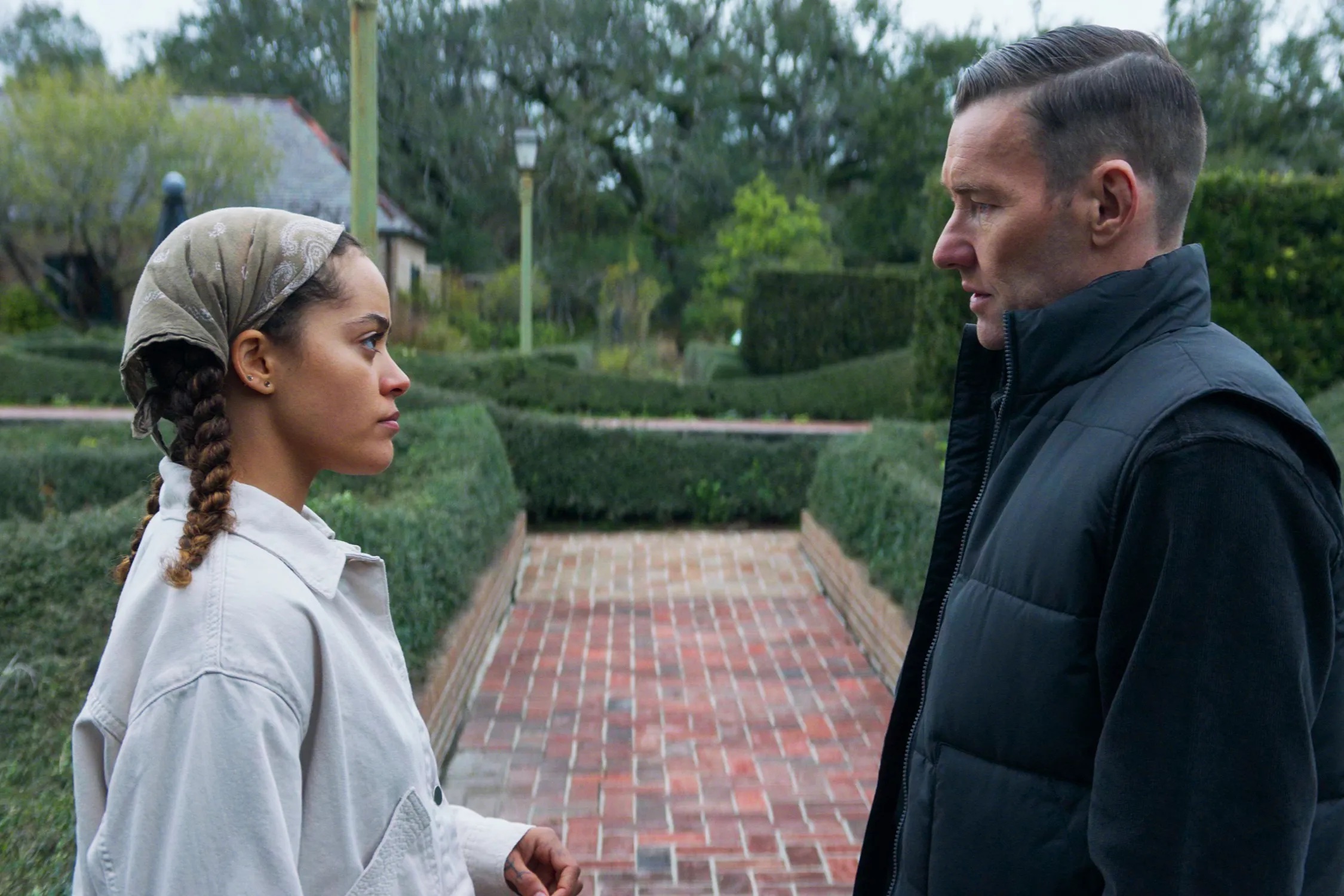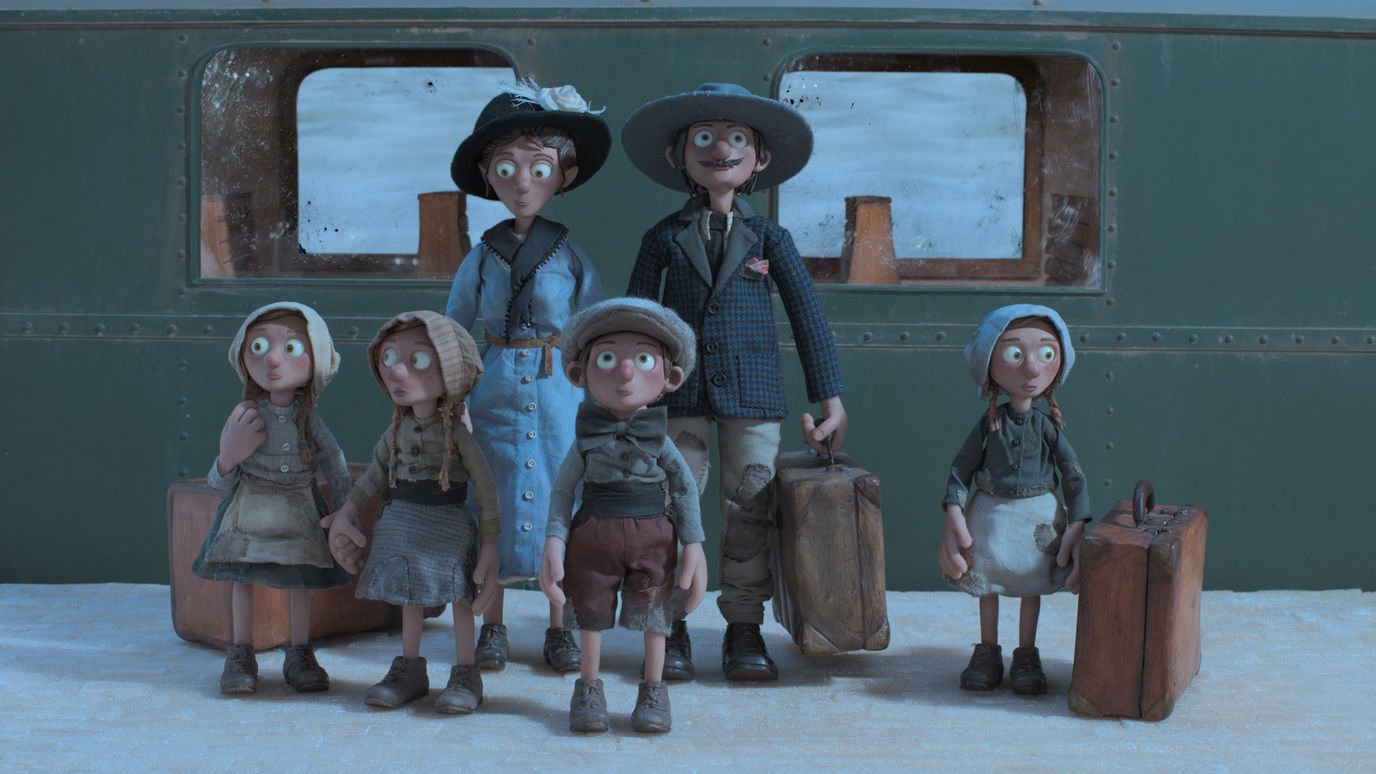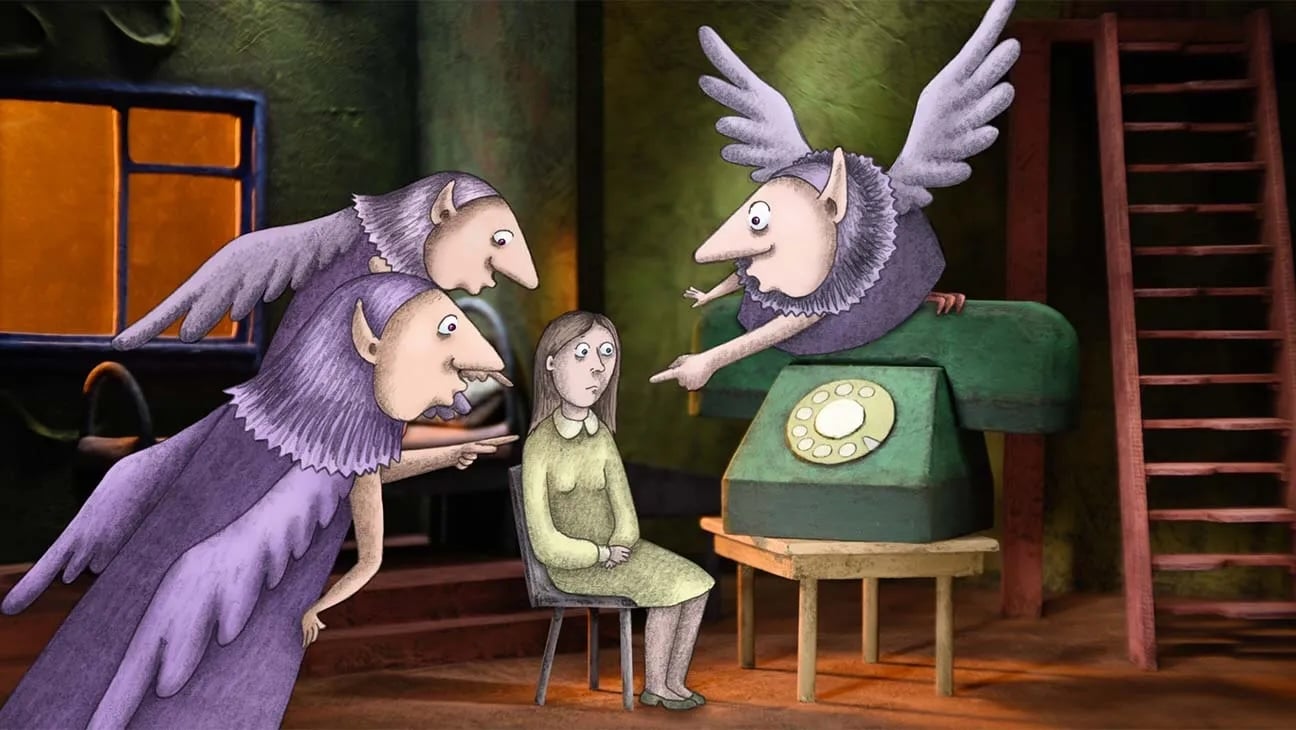
100 Best Movies of 2023 (Regularly Updated)
April 8, 2025
Share:
Even if we put aside comic books and Barbie dolls, 2023 is shaping up to be a surprisingly fun year for movies. Who would have thought, for instance, that telling stories about once-novel now-defunct items like BlackBerry phones and pinball machines would make for a genuinely enjoyable watch? There are plenty of films like these, seemingly silly but unexpectedly good, that we’ve come to like this year, but along with these discoveries, we’re also excited to share our usual favorites: solid indies like Somewhere in Queens, game-changing dramas like A Thousand and One, genre revelations like Rye Lane. Whatever your inclination, we’re sure you’ll find much to like in our list of the best movies 2023 has to offer.
If you’re looking for fresher fare, you can also take a look at our regularly updated list of favorites this 2024.
Read also:
91. Master Gardener (2023)
Genres
Director
Actors
Moods
As the third instalment in Paul Schrader’s “man in a room” trilogy after First Reformed (2017) and The Card Counter (2021), Master Gardner rounds up the issues at stake in a most profound way. For anyone who’s seen a film either scripted by Schrader (such as Taxi Driver) or directed by him, there will be no surprises here: lost men, despairing men, men who are desperate to believe in something. But the salvation of love lurks around the corner and the new film makes no exception. An unconventional couple, Joel Edgerton and Quintessa Swindell (as Maya) make up the beating heart of this suspenseful drama with an emotional push and pull delivered in small doses. What could have been a kitschy, insensitive work blossoms into a treatise on how gentle the harshness of life can be.
92. Yellow Door: ’90s Lo-fi Film Club (2023)
Genres
Director
Actors
Moods
Given a budget from Netflix to make a documentary on Korean film, some would have chosen instead to make one for big Korean filmmaking personalities like Academy Award winner Bong Joon-ho, who is featured here. However, director Lee Hyuk-rae instead creates Yellow Door, a love letter to the ‘90s film club that inspired a generation. The warm way each member tries to remember the club made decades ago, and the handy, almost cheeky, animations makes it feel like we’re there in the club with them, just listening to friends reminisce about the way they obsessed about film, even if it wasn’t the major they were studying in. It’s so nostalgic and sentimental, and in shifting its focus, it celebrates the lovely experience of finding a community of like-minded people that’s just obsessed with film as you are.
93. ONEFOUR: Against All Odds (2023)
Genres
Director
Actors
Moods
Documentaries about musicians — or anyone famous, for that matter — are often mythologizing puff pieces, essentially feature-length airings of PR material. But Against All Odds has more to it than flattery. It chronicles the rise of Australia’s first drill rappers, five young men of Samoan origin who soared to fame from their disadvantaged Sydney neighborhood after going viral and catching the eye of artists like the UK’s Skepta and Australia’s own The Kid Laroi.
ONEFOUR’s rise from “the trenches” is compelling in itself — far more so than some of the dull origin stories that often pad out this kind of movie — but the documentary is given even more weight by its examination of the forces that sought to put out their fire: New South Wales police. ONEFOUR’s lyrics, which often reference violence, put them in the crossfires of a police tactical unit determined to, in one officer’s words, “make [ONEFOUR’s] life miserable until [they] stop what [they’re] doing.” Amazingly, the on-camera police interviews feature even more brazen admissions of the ways they “lawfully harass” ONEFOUR, a fact that makes this documentary an eye-opening portrait of both aggressive (and allegedly racist) policing and the resilience of the group in the face of it.
94. Nyad (2023)
Genres
Director
Actors
Moods
After winning Oscars for their documentary work, filmmakers Elizabeth Chai Vasarhelyi and Jimmy Chin make their narrative feature debut with Nyad. The move to narrative fiction isn’t a monumental jump for the director duo, whose cinematic documentaries (among them Free Solo and The Rescue) play like nerve-shredding action thrillers and intense human dramas. Nor does Nyad’s subject — another extreme feat of human daring and endurance — make this feel a million miles away from their most famous works.
The most obvious departures from the directors’ documentary strengths — Nyad’s flashbacks and hallucination scenes, for example — do sometimes highlight their newness to narrative filmmaking, however. These scenes feel shallow and therefore disconnected from the movie’s otherwise deeper treatment of its subject, just as the performances dip into outsized cliches at times. Mostly, though, Nyad manages to float above the trap of trying too hard to be an inspirational sports drama thanks to its confrontation of Diana’s prickly personality. This flips the film’s perspective onto that of Diana’s team (including her coach and former girlfriend, played by Jodie Foster), who ultimately suffer the consequences of her stubbornness. That refusal to submit to hagiographic impulses gives the film a documentary-like edge of truth, making the rousing moments here feel genuinely earned.
95. Mike Birbiglia: The Old Man and the Pool (2023)
Genres
Director
Actors
Moods
Many comedians use humor as a way to ease into more serious subject matter, though there always exists a risk that a comedy special can skew too far down the silly or the self-reflective route. Mike Birbiglia has come about as close to the perfect balance as possible, in this recording of his one-man Broadway show at the Vivian Beaumont Theater. Key to this is the fact that Birbiglia tells one very cohesive story throughout these 77 minutes, frequently branching off to other humorous anecdotes but always returning with a pensive self-consciousness to the real possibility of him dying sooner than he’d want.
This filmed version of Birbiglia’s show doesn’t give a full idea of its multimedia qualities (Birbiglia occasionally has words and images projected onto the curved screen behind him, which he also physically interacts with), but the comedian’s sincere style of storytelling more than makes up for the lack of audiovisual tricks we’re permitted to see. And don’t get it confused: this is a very funny stand-up special, whose jokes always come from the most unexpected places—it also just happens to contain some truly moving moments that come out of nowhere, but make total sense alongside all the laughter.
96. Leo Reich: Literally Who Cares?! (2023)
Genres
Director
Actors
Moods
Generation-centric comedy is often of the “kids these days” variety — in which comedians make uninspired jibes about the youth of today while spectacularly lacking self-awareness of their own — but twenty-something stand-up Leo Reich thankfully upends that trend with his self-lampooning debut show. Reich takes a risk by unabashedly casting himself as a self-absorbed nepo baby in the opening — narcissism as a bit can become grating pretty quickly — but his perceptive abilities and readiness to both embody and commentate on Gen Z stereotypes are the saviors of this hour-long comedy special.
Stand-up isn’t the only medium he makes use of: the show is also part-musical, as Reich belts out wry musings on the contradictions of his generation — at once self-loathing but tending towards narcissism, cripplingly self-aware but no more enlightened for it — at intervals throughout. If there’s anything to lament here, it’s that Reich’s main character syndrome is so effectively paired with the doom-and-gloom context he paints (as he puts it, he’s spent way too much of his youth Googling “death toll”) that the show’s aftertaste is a little too bitter — but then again, nihilism is another characteristic typically associated with zoomers, so you could argue this is simply supreme commitment to the bit.
97. No Dogs or Italians Allowed (2023)
Genres
Director
Actors
Moods
With cardboard houses, sugar winters, and broccoli trees, No Dogs or Italians Allowed at first seems lighthearted, playful, and not too serious. Alain Ughetto casts himself asking his grandmother Cesira about his family, but we only see his hands moving and interacting with the characters as if he was crafting clay model miniatures. However, the whimsical approach sugarcoats the very tragedies that struck his family– from the multiple wars to the discrimination they’ve faced as immigrants– with excellent animation and puppetry that feels much more lifelike than 3D CGI. In telling his family’s story, Ughetto also retells 20th century European history, reframing the worldwide events and movements through a personal perspective.
98. How to Have Sex (2023)
Genres
Director
Actors
Moods
While named as a “how-to”, How to Have Sex is less of an instruction manual, and more of a collection of summer break moments presented as is. At the start, when Tara, Em, and Skye run to the freezing ocean water, the film seemed like it would have all the nostalgic coming-of-age moments that they would remember forever. But as the film progresses, and the girls meet other teenagers at the resort, there’s an eerie, foreboding feel that starts to build up, with every beer bottle, with every whisper, and with every insinuation Tara receives. And rather than preach about consent, writer-director Molly Manning Walker makes them fumble around without the concept of it, the same way teens tend to do, making it much more potent than a cautionary tale.
99. Evil Does Not Exist (2023)
Genres
Director
Actors
Moods
Evil Does Not Exist begins a simple enough parable about the dangers of disrupting the delicate balance of nature, particularly through capitalistic greed. It’s easy to follow and root for the right characters, while the majestic views of rural Japan and the curious ways the film is edited (all abrupt musical cuts and shaky cameras) add to the movie’s charm. But fans of director Ryusuke Hamaguchi (Drive My Car, Wheel of Fortune and Fantasy) know better than to trust a seemingly straightforward path, which is of course not what you get in Evil Does Not Exist. The film takes a turn for the supernatural, maybe too late in its run, but it’s beguiling and thought-provoking nonetheless. It’s worth watching for many reasons, but the jarring realization that you might not know what this film—and indeed life—is really about is the true highlight.
100. My Love Affair with Marriage (2023)
Genres
Director
Actors
Moods
It’s not often you get a female perspective on the USSR, much less a female artist with little means. Signe Baumane’s autobiographical My Love Affair With Marriage is one of the few ones, and not only is her story raw and refreshing, it’s also told through lovely animation and musical numbers. The result is something truly novel. Baumane analyzes ideas like love, marriage, gender, and society through an unapologetically feminist lens. But she’s careful not to be patronizing too. Instead of condemning her circumstances, she gives it context and shows empathy. Some parts are delightful, others distressing, but Baumane’s character (voiced by Succession’s Dagmara Dominczyk) is compelling throughout.
Read also:
Comments
Add a comment
Ready to cut the cord?
Here are the 12 cheapest Live TV streaming services for cord-cutting.
More lists
Lists on how to save money by cutting the cord.
Curated by humans, not algorithms.
© 2025 A Good Movie to Watch. Altona Studio, LLC, all rights reserved.










